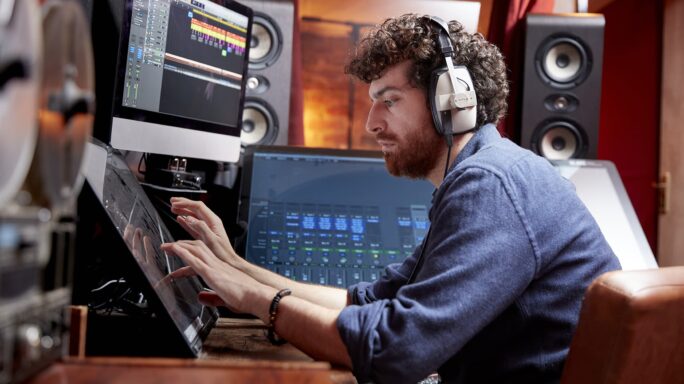Business process
“It’s fluid and painfully humbling.” Entrepreneur shares her view on the journey

“When you’re a small business owner, you’ll have hundreds of tasks to fulfil before the day is done. From bookkeeping to social media management, there’ll be a lot on your daily plate. However, with a virtual personal assistant (VPA) by your side, you won’t have to worry about all that. We’ve got you covered.”
Her company may be Nameless, but hers is one you’ll be hearing often. Lerato Litheko is the founder and owner of virtual PA company Nameless VPA’s, an online service of great people making use of good technology to ease the admin burden of their clients.
Lerato is a firm believer in convenience, which is why she started a company that caters solely to making life easier. Need your children collected from school? There’s a VPA for that. Flights booked? VPA. Meetings scheduled and minutes taken? You guessed it – VPA.
“It’s all about efficiency and accessibility. Time is an expensive currency. Everyone who knows that is either willing to sell their time to others or to pay someone for theirs,”
she says. “VPAs will home in on tasks that usually kill your time as an entrepreneur, helping you focus on your company’s growth. Essentially, VPAs are time savers, and time is an important commodity in business.”
The list of possibilities for VPAs is endless – if you can outsource it, Nameless VPA’s can do it. “For example, if a VA is a good writer, you can hire them for content writing and digital marketing. You could also hire an experienced virtual administrative assistant or executive assistant to handle data entry, reminder services, and appointment scheduling,” says Lerato.
What’s in a name?
Having started as a VPA in 2008, Lerato knows the ropes – and the perils – of the entrepreneurship journey.
“It is very fluid and painfully humbling,” she says, “Most of the time, you don’t know what you’re doing, but you know you have to do it perfectly. It takes a certain level of stubbornness (or foolishness!) to keep doing that over and over again, whether successfully or with failure. It’s one thing to be able to provide a service that solves a problem. It’s an entirely different ball game to run a business that provides a service that solves a problem.”
While the life of an entrepreneur is not an easy one to start, there is light at the end of the tunnel, although no room for complacency. “It’s tough and painful as you go through each step, but there comes a point where it starts to make sense. You have to keep pushing till you get to this point. And once you’re there, you very thoroughly and confidently pay attention to each step moving forward,” she says.
Lerato shares that the secret lies in being flexible, constantly unlearning to learn, and having the ability to ‘pivot well’ so that you can change direction if need be. She also notes that being an entrepreneur is a holistic endeavour. “You have to pay close attention to the people you admire and respect, not just in the business space but in your personal space too, because, as an entrepreneur, every part of who you are is involved in the process.”
The all-encompassing nature of entrepreneurship does come with its challenges, and Lerato has seen her share of them. “To be honest, the day you decide to fully embody being an entrepreneur, you’re signing the contract with yourself to always take on challenges,” she says. “They never stop. Once you’ve solved one problem, another one creeps up. You just get better at your capacity to solve them. Every new challenge is more difficult. Every problem you solve prepares you for the next problem. It’s crazy.”
Adaptation: The name of the game
Lerato believes that a standard skill of entrepreneurs is the ability to keep evolving. “This skill is vital because we don’t live in what could, should, or didn’t happen. We deal with the current facts and explore within those possibilities,” she says.
“Entrepreneurs are the medium through which the economy and communities are going to be rebuilt.”
Being an entrepreneur means being open to learning from your and others’ mistakes and building bigger and better businesses based on that knowledge.
So, what can you learn from Lerato?
On when you should make the entrepreneurial jump: “Try something new out of interest and curiosity and also based on your understanding of your skillset. If you’ve enjoyed it for two or three years and are good at it, turn it into a money-making platform. Some will work out. Some won’t. Some are meant to make money. Some are meant to stay in the hobby lane. You have to give yourself the space to figure out which is which.”
On what you should be reading: “I try not to be fixated on business books. In my experience, every business has its own complex issues, which you only learn as they arise, so nothing can prepare you for it. I do, however, read books on self-growth because I need to be in check to keep everything else in check.”
On small business finances: “It’s hard as a small business because you’re running everything out of pocket. You’ll lose money learning lessons. Once or twice a year, relook at your running costs. You’ll keep having a better idea of what your company needs to run and what is just decor.”
On what you need to grow to get where you want to go: “People skills. And this is from both aspects: when dealing with clients and when dealing with your team. Your team and your clients are an extension of your business, so you need to extend yourself to them. It goes a long way.”
And what she knows best? “That I don’t know anything at all.”








Ask the author a question or share your advice